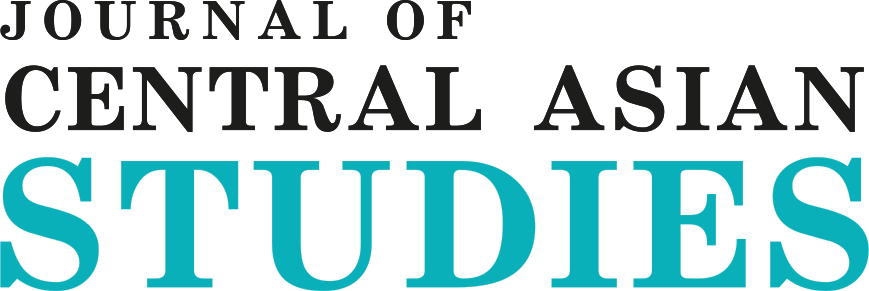Expanding Eurocentric Narratives of International Relations through Conservative Cooperation
DOI:
https://doi.org/10.52536/3006-807X.2024-1.02Keywords:
International relations, Western theory, non-Western theory, post-Western theory, eurocentric narrativesAbstract
Since the mid-1990s, critical International Relations (IR) scholars have increasingly drawn on postcolonial studies to call for opening up IR. However, it has turned out to be a more challenging task than initially imagined. It requires insight into the reasons behind the differences between the forms of national IR and the implications of such variation for our understanding of the international. Such differences need inquiring into by treating those from outside North America and Western Europe as thinking actors and paying attention to their accounts of the international.
Eurocentrism occurs when research is designed in a way that occludes the global theory by drawing a direct line from ancient Greece to Renaissance Europe to modern day ‘West’ with next-to-no sociological insight into ‘connected histories’ of societies.
Over the years, methodological Eurocentrism has produced a particular narrative about Europe’s place in world history. Thus, Eurocentric narratives have allowed designing research by virtue of the persistence of concepts that have been informed by the very same narratives. The critical point being, the very concepts through which we make sense of world politics (such as state, development, sovereignty and security) have their limitations not only when transplanted to other parts of the world but also when studying ‘Europe’ itself.
References
Acharya, A. (2014). Global International Relations (IR) and Regional Worlds. International Studies Quarterly, 58(4), 647-659.
Acharya, A. (2016). Advancing Global IR: Challenges, Contentions, and Contributions. International Studies Review, 18(1), 4-15.
Acharya, A., & Buzan, B. (2009). Non-Western International Relations Theory: Perspectives on And Beyond Asia. New York: Routledge.
Chibber, V. (2018). The Dual Legacy of Orientalism. In B. Abu-Manneh (Ed.), After Said Postcolonial Literary Studies in the Twenty-First Century. Cambridge: Cambridge University Press.
Cho, Y. (2013). Colonialism and Imperialism in the Quest for a Universalist Korean-style International Relations Theory. Cambridge Review of International Affairs, 28(4), 680-700.
Davenport, A. (2019). Multiplicity: Anarchy in the Mirror of Sociology. Globalizations, 17(3), 532-545.
Goodhart, M. (2003). Origins and Universality in the Human Rights Debates: Cultural Essentialism and the Challenge of Globalization. Human Rights Quarterly, 25(4), 935-64.
Hurrell, A. (2016). Beyond Critique: How to Study Global IR? International Studies Review, 18(1), 149-151.
Qin, Y. (2018). A Relational Theory of World Politics. Cambridge: Cambridge University Press.
Reus-Smit, C. (2018). On Cultural Diversity: International Theory in a World of Difference. Cambridge: Cambridge University Press.
Said, E. (2014). Orientalism. New York: Vintage Books.
Shahi, D. (2019). Kautilya and Non-Western IR Theory. Basingstoke: Palgrave Macmillan.
Shih, C., Huang, C., Yeophantong, P., Bunskoek, R., Ikeda, J., Hwang, Y., . . . Chen, C. (2019). China And International Theory: The Balance of Relationships. Abingdon: Routledge.
Tickner, A., & Blaney, D. (2012). Thinking International Relations Differently. New York: Routledge.
Van der Pijl, K. (1998). Transnational Classes and International Relations. New York: Routledge.
Van der Pijl, K. (2006). Global Rivalries from the Cold War to Iraq. London: Pluto Press.
Van der Pijl, K. (2007). Nomads, Empires, States. Modes of Foreign Relations and Political Economy (Vol. I). London: Pluto Press.
Van der Pijl, K. (2014). The Discipline of Western Supremacy. Modes of Foreign Relations and Political Economy (Vol. III). London: Puto Press.
Yan, X. (2009). Ancient Chinese Thought, Modern Chinese Power. In Thoughts of World Leadership and Implications. Beijing: Shijie zhishi chubanshe.
Yan, X. (2011). Ancient Chinese Thought, Modern Chinese Power. Princeton: Princeton University Press.
Yan, X. (2019). Leadership and The Rise of Great Powers. Princeton: Princeton University Press.
Yong-Soo, E. (2019). Global IR through Dialogue. The Pacific Review, 32(2), 131- 149.
Zhao, T. (2019). Redefining A Philosophy for World Governance. Beijing: Palgrave Macmillan
Downloads
Published
Issue
Section
License
Copyright (c) 2024 Zhiyenbayev M.

This work is licensed under a Creative Commons Attribution 4.0 International License.










 Open content is licensed under the CC-BY
Open content is licensed under the CC-BY 


